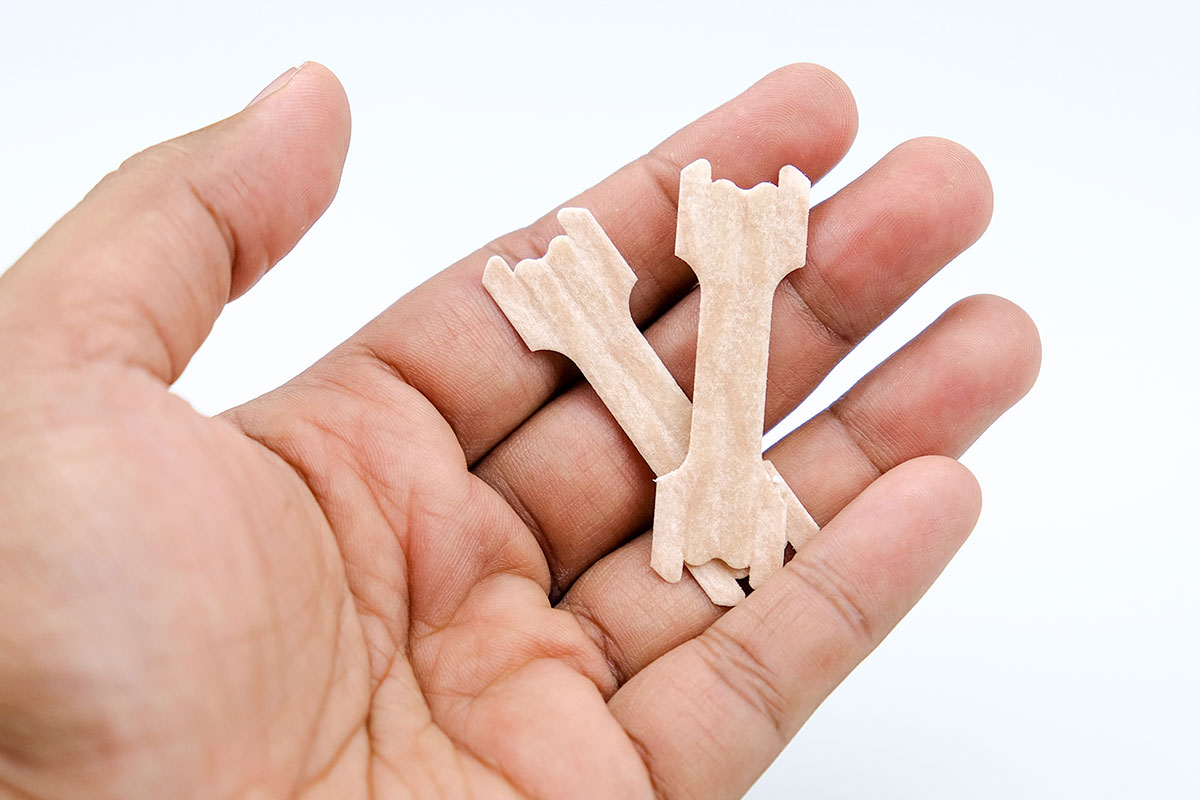
If you’re looking for anti-snoring solutions, you may have heard of nasal strips for snoring. But what are they? And do they work?
Snoring is a major problem for a significant number of Australians, impacting individuals, their partners, and others, and the effects of which extend to general health, wellbeing, safety and mood. There are physical, emotional, mental, social, and relationship consequences of snoring. As such, finding effective ways to stop snoring is a priority for many.
What are Nasal Strips for Snoring?
Snoring nasal strips are worn during sleep. They aim to open the nostrils to improve and enhance airflow through the nose.
- External nasal dilators or strips consist of a stiff adhesive strip (like a splint) that is applied to the nose. They work by lifting and pulling the nostrils open from the sides of the nose.
- Internal nasal dilators are cage-like plugs or devices that are worn inside the nostrils to help hold them open.
Both types of systems aim to create more space for air to flow when breathing through the nose. This enables the sleeper to sleep with their mouth closed and enjoy a smooth stream of air between the nose, the back of the throat, and the lungs – and ideally with no snoring.
Most nasal obstruction is caused by anatomical abnormalities like a deviated septum, or congestion and inflammation from allergies or viral illnesses. The stream of air through the nose is minimised and mouth breathing is more likely to occur by default. Breathing through the mouth dramatically increases the likelihood of snoring.
Do Snoring Nasal Strips Really Work?
The so-called jury is somewhat out as to how effective nasal strips are for stopping snoring.
Some medical science studies do support nasal strips as having some positive impact on snoring for some people – specifically, those whose snoring is nasal-based.
- For example, this 1997 study from a sleep laboratory in Sweden assessed a small sample of 35 habitual snorers (who did not have sleep apnoea) over fourteen nights. They discovered that for people whose snoring resulted from nasal stuffiness, external nasal dilation reduced snoring and improved sleep quality by decreasing nasal airway resistance.
- A literature review study from 2016 performed a systematic review with meta-analysis of 112 international studies evaluating both internal nasal dilators and external nasal strips for people who snored or had sleep apnoea. Fourteen of the studies met the review criteria and ultimately 147 patients were reviewed. The study concluded that nasal dilators and strips (internal and external) had no benefit at all for snoring for sleep apnoea sufferers but could improve nasal breathing in non-apnoea snorers.
- A randomised, placebo-controlled clinical trial by Allergy Asthma Clinical Immunology in 2018 explored the effects of a new nasal strip product on nasal congestion and sleep quality. It concluded that nasal strips offered a significant improvement for people whose sleep issues and snoring derived from nasal congestion.
While the above sounds promising, the issue is that only a small percentage of snoring is nasal-based. There is little clinical evidence to support nasal strips for snoring as being effective for most chronic snorers – they may simply stifle snoring temporarily in some people.
Nasal Strips Pros:
- Safe and medication-free
- Few side effects
- Can be used for up to 12 hours at a time
- May alleviate snoring due to nasal congestion, allergies, colds, etc
Nasal Strips Cons:
- Possible skin reaction from the adhesive
- Unsuitable for those with allergies to medical adhesive or tape
- May cause injury to the skin on removal
- Success is reliant on perfect positioning
- May be uncomfortable for some users
- Not effective for mouth-, tongue-, or throat-based snoring
- Adhesive nasal strips are single-use only – while affordable, they need to be purchased continuously
Ultimately, nasal strips are only of potential benefit for snorers whose snoring is the result of nasal stuffiness, swelling, or partial obstruction that is corrected by their use. For those snorers whose issues are based in the throat or mouth, nasal strips are of little benefit. This represents the majority of snorers.
Furthermore, according to clinical studies, a person with obstructive sleep apnoea gains no benefit whatsoever from using nasal strips.
SnoreMD – a Scientifically Proven Anti-Snoring Solution That Works!
By far one of the most effective anti-snoring solutions on the market today is SnoreMD.
SnoreMD is Australian pharmacies number #1 selling mandibular advancement device and is recommended by Sleep Physicians as a credible option to address their patients’ snoring issues. Biomedically engineered, safe, and comfortable to use, it addresses the root cause of most snoring – that which arises from the soft palate and/or the base of the tongue.
SnoreMD works by gently repositioning the lower jaw, moving it slightly forward during sleep so that the airways are opened to admit better airflow during breathing. This minimises (or even stops) the snoring and elicits a deeper, quieter, more restful sleep.
Even mouth breathers can minimise snoring when they use SnoreMD.
SnoreMD is:
- Proven to be effective to stop snoring
- Budget-friendly
- Micro-adjustable and comfortable to wear
- Washable
- Reusable over a long period
- Portable and discreet
- No side effects
- Safe for all adults to use
- Medication-free stop snoring solution
- Enables mouth breathing
- Unintrusive to sleep
- Comes with a warranty/money-back guarantee
Discover more about SnoreMD here.
Understand how SnoreMD works and buy SnoreMD today!
You can also call us during business hours on 07 5370 9323.


